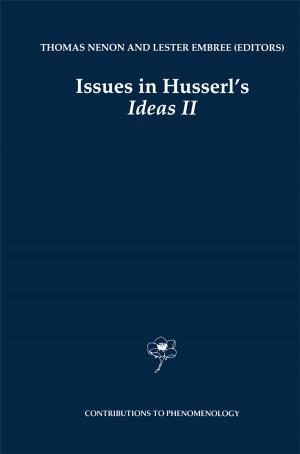Globalisation and Historiography of National Leaders
Symbolic Representations in School Textbooks
Nonfiction, Reference & Language, Education & Teaching, Educational Theory, Curricula, Educational Reform| Author: | ISBN: | 9789402409758 | |
| Publisher: | Springer Netherlands | Publication: | December 23, 2016 |
| Imprint: | Springer | Language: | English |
| Author: | |
| ISBN: | 9789402409758 |
| Publisher: | Springer Netherlands |
| Publication: | December 23, 2016 |
| Imprint: | Springer |
| Language: | English |
Globalisation and Historiography of National Leaders: Symbolic Representations in School Textbooks, the 18th book in the 24-volume book series Globalisation, Comparative Education and Policy Research, explores the interrelationship between ideology, national identity, national history and historical heroes, setting it in a global context. Based on this focus, the chapters represent hand-picked scholarly research on major discourses in the field of history textbooks and symbolic representations of national heroes, and draw upon recent studies in the areas of globalisation, history textbooks, and national leaders.
A number of researchers have written on the importance of teaching national history in order to foster national identity and a sense of belonging to a certain society, state, and people among the younger generation. Some nations prefer to create national heroes out of their political leaders who are still in power, and whose lives and reputation are portrayed as being eminently spotless. Using diverse comparative education paradigms from critical theory, social semiotics, and historical-comparative research, the authors analyse the unpacking of the ideological agenda hidden behind the choice and lionization (or silencing) of the preferred national heroes. They provide an informed critique of various historical narratives depicting national leaders and national heroes.
The book provides an easily accessible, practical yet scholarly source of information on international concerns in the field of globalisation, history education and policy research. Offering an essential sourcebook of ideas for researchers, history educators, practitioners and policymakers in the fields of globalisation and history education, it also provides a timely overview of current changes in politically correct history education narratives in history textbooks.
Globalisation and Historiography of National Leaders: Symbolic Representations in School Textbooks, the 18th book in the 24-volume book series Globalisation, Comparative Education and Policy Research, explores the interrelationship between ideology, national identity, national history and historical heroes, setting it in a global context. Based on this focus, the chapters represent hand-picked scholarly research on major discourses in the field of history textbooks and symbolic representations of national heroes, and draw upon recent studies in the areas of globalisation, history textbooks, and national leaders.
A number of researchers have written on the importance of teaching national history in order to foster national identity and a sense of belonging to a certain society, state, and people among the younger generation. Some nations prefer to create national heroes out of their political leaders who are still in power, and whose lives and reputation are portrayed as being eminently spotless. Using diverse comparative education paradigms from critical theory, social semiotics, and historical-comparative research, the authors analyse the unpacking of the ideological agenda hidden behind the choice and lionization (or silencing) of the preferred national heroes. They provide an informed critique of various historical narratives depicting national leaders and national heroes.
The book provides an easily accessible, practical yet scholarly source of information on international concerns in the field of globalisation, history education and policy research. Offering an essential sourcebook of ideas for researchers, history educators, practitioners and policymakers in the fields of globalisation and history education, it also provides a timely overview of current changes in politically correct history education narratives in history textbooks.















